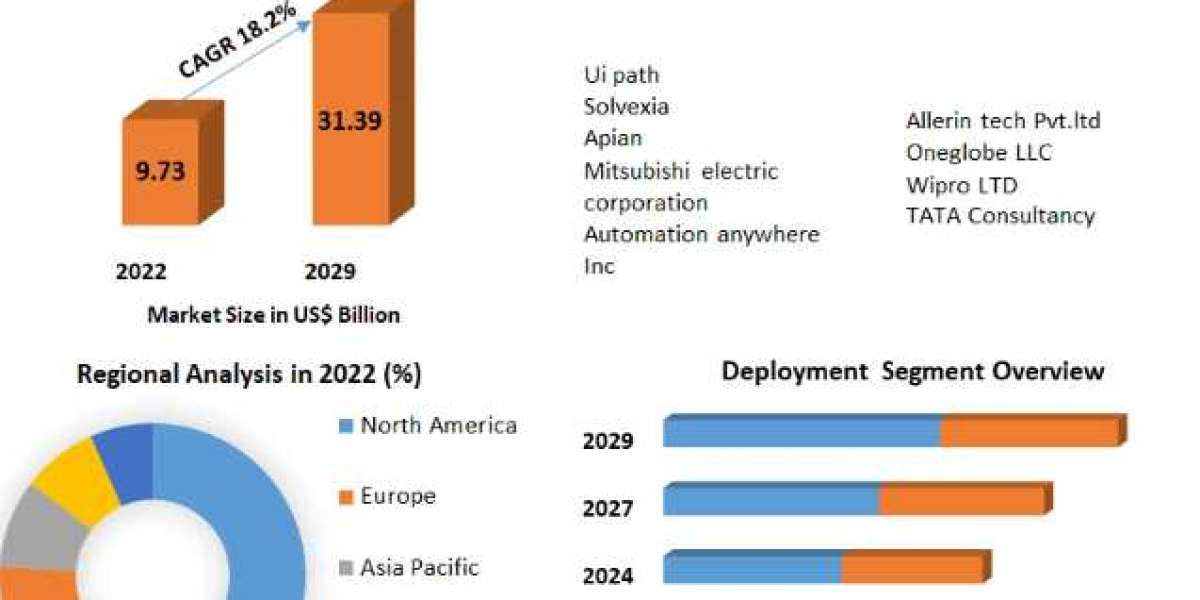Revolutionizing Industries: The Growth and Impact of Intelligent Sensors Market
Introduction
The intelligent sensors market has witnessed remarkable growth in recent years, and this trend is projected to continue as industries seek to optimize processes, enhance efficiency, and deliver superior user experiences.
In the ever-evolving landscape of technology, intelligent sensors have emerged as a pivotal driving force behind innovation and automation. These sophisticated devices are transforming industries, paving the way for smart homes, industrial automation, healthcare advancements, and much more.
Understanding Intelligent Sensors
Intelligent sensors, often referred to as smart sensors, are advanced electronic devices equipped with microprocessors and communication capabilities. They possess the ability to collect data, process it, and provide valuable insights or perform specific actions based on the input received. Unlike traditional sensors, which solely measure and transmit raw data, intelligent sensors bring in-built intelligence to the table, making them versatile and adaptable to various applications.
Get a Free PDF Sample Intelligent Sensors Market
Key Technologies Empowering Intelligent Sensors
- Internet of Things (IoT): The widespread adoption of IoT technology has significantly contributed to the growth of intelligent sensors. IoT facilitates seamless connectivity between smart devices, enabling real-time data exchange and empowering intelligent sensors to communicate with other devices, cloud-based platforms, or centralized control systems.
- Artificial Intelligence (AI) and Machine Learning (ML): Integrating AI and ML capabilities into intelligent sensors enhances their ability to learn and adapt to changing environments. This enables them to identify patterns, make predictions, and optimize their performance over time, making them invaluable assets in various sectors.
- Miniaturization and MEMS Technology: The miniaturization of electronic components, along with the advancements in Micro-Electro-Mechanical Systems (MEMS) technology, has led to the development of compact and power-efficient intelligent sensors. These sensors can be embedded into small devices, wearable gadgets, and even within the human body, revolutionizing healthcare and personal monitoring.
Transforming Industries through Intelligent Sensors
- Automotive Industry: In the automotive sector, intelligent sensors play a crucial role in advanced driver assistance systems (ADAS). They enable features like lane departure warnings, adaptive cruise control, and collision avoidance, improving safety and making autonomous driving a reality. Moreover, they contribute to vehicle diagnostics, reducing maintenance costs and enhancing performance.
- Healthcare: Intelligent sensors have revolutionized healthcare by enabling remote patient monitoring, continuous health tracking, and personalized treatment plans. They are integrated into wearable devices, such as fitness trackers and smartwatches, enabling individuals to monitor their vital signs and physical activities effortlessly.
- Industrial Automation: Industrial settings have embraced intelligent sensors to optimize production processes, enhance quality control, and monitor equipment performance. These sensors facilitate predictive maintenance, minimizing downtime and increasing overall operational efficiency.
- Smart Homes: In the realm of smart homes, intelligent sensors are used for various applications, including home security, energy management, and smart lighting. They can detect occupancy, ambient light levels, temperature, and humidity, automating the control of various devices and systems for a more comfortable and energy-efficient living space.
Buy Premium Research Report Buy Now
Challenges and Opportunities
Despite the significant growth and benefits, the intelligent sensors market faces several challenges, such as concerns related to data security and privacy. Additionally, the implementation of intelligent sensors requires a skilled workforce capable of handling the complexity of data analytics and AI-driven applications.
However, these challenges open up opportunities for research and development in sensor technology, data encryption, and AI algorithms. As the demand for intelligent sensors continues to rise, companies investing in these areas will gain a competitive edge and drive the market forward.
Conclusion
The intelligent sensors market has emerged as a driving force behind numerous technological advancements across industries. By incorporating IoT, AI, and miniaturization, these smart devices have transformed traditional applications into efficient, automated, and data-driven systems. As industries recognize the potential of intelligent sensors in improving safety, reducing costs, and enhancing user experiences, the market is expected to witness exponential growth in the coming years. To harness the full potential of intelligent sensors, businesses and researchers must collaborate to overcome challenges, ensuring that these devices remain at the forefront of innovation, shaping a smarter and more connected future.


